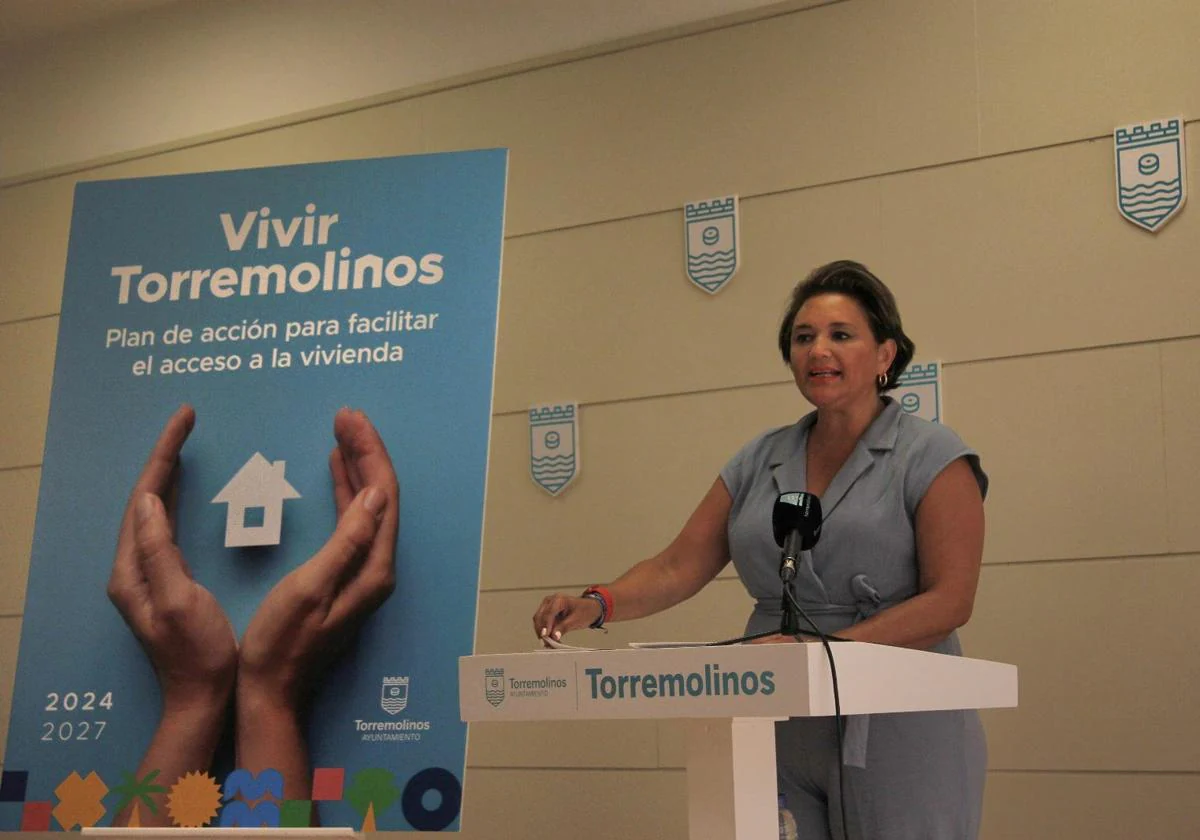Torremolinos to ban tourist use of rental properties without separate entrance and services
The town hall wants to establish a maximum density of such accommodation in areas with housing shortages and foresees the construction, in 3 or 4 years, of 214 public housing units with private collaboration
José Rodríguez Cámara
Torremolinos
Wednesday, 10 July 2024, 19:43
In order not to fall into "sectarianism" or "stigmatise" tourism, given that it is an industry on which Torremolinos has prospered for three quarters of a century, the mayor, Margarita del Cid, has presented a plan which seeks to facilitate access to housing. She acknowledged that the plan was born out of the concern of "different segments" of the population about the growing housing problems.
This strategy is called 'Live Torremolinos' and includes measures aimed at holiday regulations, which, Del Cid pointed out, will arrive "progressively in the coming months and will also be included in the summary of urban planning which is already being worked on".
"Provided that there is no sharing of common spaces or services"
One of the most important aspects of the housing plan is to "allow the compatibility of residential use with tourist use in the same property or group of properties, as long as they do not share common spaces or services". In other words, the use of a house or flat as tourist accommodation is not possible if the owner does not have a separate access to the property and is not able, for example, to separately quantify expenses such as electricity and water. In this scenario, for example, it is not possible for guests to use the communal swimming pool of a residential complex.
Similarly, the local administration will review the building permits and responsible declarations linked to the tourist use of a property every five years, regardless of the taxation applied to this property in the first place.
A period of six months is also envisaged for owners of properties intended for tourist use to adapt to the current regulations.
Detailed study of supply
The plan announced by Torremolinos also foresees the establishment of a maximum density of tourist housing, which will be delimited in the urban planning if it is detected that there is a lack of residential properties in these areas. The mayor said that a prior study is essential for this, as there is not an analysis by neighbourhoods which could detect that some have a greater tourist demand than others.
These municipal measures will go hand in hand with another of the ideas announced, this time in collaboration with the Junta de Andalucía, such as the creation of a geolocated map that will allow the location of tourist accommodation to be known for "better control, provision to avoid saturation and as tourist information".
Public housing
The mayor also announced that, once the reserve of 25,395 square metres for the construction of public housing has been guaranteed in up to six areas of the municipality, such as La Leala, El Pinillo and some parts of El Calvario, it will be possible "in the short term, three or four years", for the town hall to construct 214 dwellings. The aim is that this residential area will be put on the market as VPO (subsidised social housing). Del Cid pointed out that a second phase of this type of property, consisting of another 144 homes, is envisaged, this time in the medium term, five to eight years. "This means a total of 358 homes over the next decade, which will undoubtedly help to alleviate some of the problems of access to housing," she said.
"It is important that the construction of housing becomes, in budgetary terms, a question of public infrastructures, and in order to give this impulse greater agility, the public-private formula could be a good idea", the mayor added. Asked about the possibility that public housing could be built in just three years, she pointed out that this boost to public housing has already been explored with companies in the sector.
Dissatisfaction with state law
The council, through 'Vivir Torremolinos', wants to present proposals to modify the Public Housing Law, which, according to Del Cid, "has generated insecurity in terms of long term-rentals, compromising the supply of housing of this type". She said that Vivir Torremolinos is open to input through the Torremolinos Despega application: the idea is to have as many proposals as possible to make the strategy as effective as possible.
Del Cid also expressed her satisfaction with the steps taken towards the creation of a "permanent forum on access to housing, rental security and improvements in the mobility of the municipality". The forum will bring together university experts and representatives of the public and private sectors to draw up periodic diagnoses on the needs of habitability and tourism.
